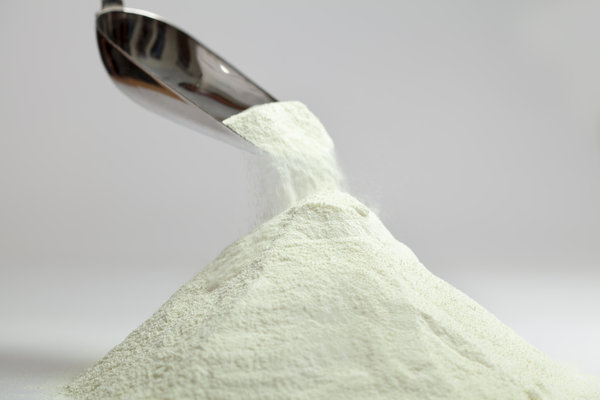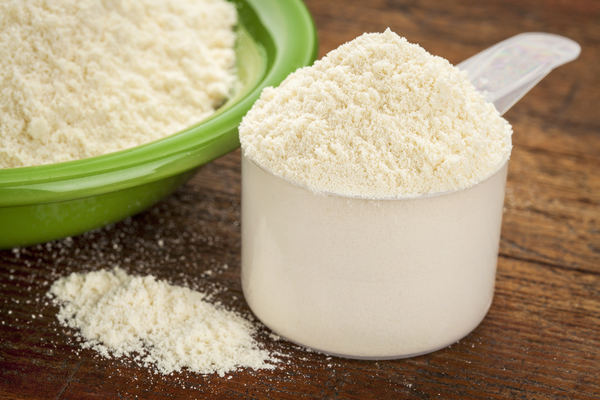Whey protein

The benefits of whey protein for dogs
Whey protein has several positive effects on the health and well-being of dogs. Here are some of them:
- Whey protein supports muscle building and recovery after exercise. It provides high-quality protein that supplies the muscle cells with amino acids. This can be particularly beneficial for athletic or older dogs.
- Whey protein strengthens the immune system and the body's defenses. It contains antibodies and immunoglobulins that can protect against infections. It also has anti-inflammatory properties that can help with allergies or skin problems.
- Whey protein promotes digestion and intestinal health. It is easy to digest and can regulate diarrhea or constipation. It also contains prebiotics that stimulate the growth of good bacteria in the gut.
- Whey protein can stabilize blood sugar levels and reduce the risk of diabetes. It has a low glycemic index and can improve insulin sensitivity. This can be particularly important for overweight or older dogs.
The disadvantages of whey protein for dogs
Whey protein is not suitable for every dog. There are also some potential disadvantages or risks that you should be aware of. Here are some of them:
- Whey protein can lead to an overdose of protein when given in addition to normal food. This can lead to kidney problems or liver damage. Therefore, you should always follow the recommended dosage and ask your vet for advice before giving your dog whey protein.
- Whey protein can cause allergies or intolerances if your dog is sensitive to dairy products. This can manifest itself in symptoms such as itching, rashes, vomiting or diarrhea. If you notice such signs, you should stop giving your dog whey protein and consult a vet.
- Whey protein can affect the quality of the finished food if it is used as an ingredient. It can lead to lower levels of other important nutrients such as vitamins or minerals. Therefore, you should always check the label of the food and make sure that it is balanced and of high quality.
Whey protein can be a useful supplement for dogs if it is dosed and tolerated correctly. It can support muscle development, the immune system, digestion and blood sugar levels.
If you notice any signs of hypersensitivity or poisoning in your dog, you should see your vet immediately. We are not a substitute for a vet, but we try to be as accurate as possible. Every dog reacts differently and we recommend you get a second opinion or consult your vet if in doubt.
Stay healthy and take good care of your four-legged friend!😊
Similar to Whey protein
Casein is a protein found in milk and dairy products. It makes up about 80% of the protein in cow's milk. Casein is often referred to as milk protein and has a gel-like structure. Casein is obtained...
Skimmed milk powder is a dairy product made by removing water and fat from milk. It has a lower energy content than whole milk and contains fewer fat-soluble vitamins. However, it has a longer shelf...
Milk protein has a high biological value, which means that it can be easily utilized by the dog's body. It provides energy and building blocks for the muscles, organs, skin and coat. It also...
What is whey protein powder? Whey protein powder is a powder made from whey. Whey is the liquid that separates from milk when it is processed into cheese. Whey contains about 20% of the protein in...



